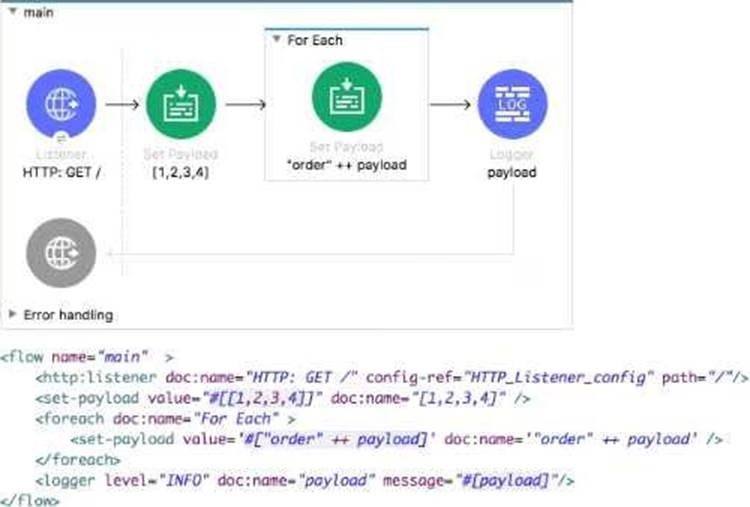What payload is logged at the end of the main flow?
Refer to the exhibits.

What payload is logged at the end of the main flow?
A . [order1, order2, order3, order4]
B . [1, 2, 3, 4]
C . order4
D . order1order2order3order4
Answer: B
Explanation:
For Each Scope
The For Each scope splits a payload into elements and processes them one by one through the components that you place in the scope. It is similar to a for-each/for loop code block in most programming languages and can process any collection, including lists and arrays. The collection can be any supported content type, such as application/json, application/java, or application/xml. General considerations about the For Each scope:
By default, For Each tries to split the payload. If the payload is a simple Java collection, the For Each scope can split it without any configuration. The payload inside the For Each scope is each of the split elements. Attributes within the original message are ignored because they are related to the entire message.
For Each does not modify the current payload. The output payload is the same as the input.
Mule Doc Reference: https://docs.mulesoft.com/mule-runtime/4.3/for-each-scope-concept
Latest MuleSoft Developer I Dumps Valid Version with 235 Q&As
Latest And Valid Q&A | Instant Download | Once Fail, Full Refund

